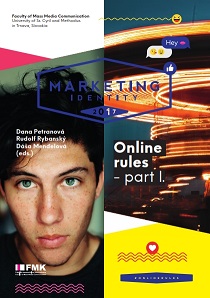New games criticism
New games criticism
Author(s): Tomáš FarkašSubject(s): Media studies, Social Informatics
Published by: Univerzita sv. Cyrila a Metoda v Trnave, Fakulta masmediálnej komunikácie
Keywords: Critique; Digital games; Gameplay; Let´s play; New journalism; Objectivity; Review; Subjectivity; Videogamedunkey;
Summary/Abstract: The main goal of this article is to bring a closer look at a phenomenon of new games journalism, which is then compared with so-ca lled „new journalism“. This was developed between 1960 and 1970 and was characteristic for its pure subjective approach and shift from standard journalism that was usually keeping the author in the background for the sake of objectivity. Even though this term was discussed as early as in 19.century, the term „new journalism“ was first codified by a journalist Tom Wolfe in 1973. Even if there is not a clear and explicit definition of this term, one of its characteristic features was an approach typical for literary fiction. Author of this article seeks an answer for a question whether aspects of a new journalism, generally perceived as negative (“truth” over facts, subjectivity, formal and stylistic ambiguity, occasional as saultiveness…) has the same effect in the context of a critique of digital games. Digital games are works of fiction per se, their primary goal is to concentrate all of their auditive, visual and narrative features onto a specific, individual player (or gamer). At the same time, the relationship between a game and a player is one of the primary concerns of the new games journalism, which we further focus on, and which was first defined by comic book writer and former game journalist Kieron Gillen in 2004. Simultaneously, author of this article contemplates the function of a review in this specific context and compares it to modern formats of gameplay or let´s play video. One of the objectives of this article is also a further definition of specific features of new games journalism (mainly in its audio-visual form) and description of its abstract and hybrid shape. The objective is not to list all of these features, but rather creating a space for further examination of this topic. Also, this article is not about a school of literary critique called “new criticism” (founded by J. C. Ransom). For a further understanding of some of the features of new games journalism, the author decided to utilize a work of a youtuber Jason Gastrow, better known as “Videogamedunkey”. In this context, the author also examines the role of big videogame webs like IGN or Gamespot and explores the new ways how the form itself can be perceived.
Journal: Marketing Identity
- Issue Year: 5/2017
- Issue No: 1/1
- Page Range: 321-333
- Page Count: 13
- Language: English

